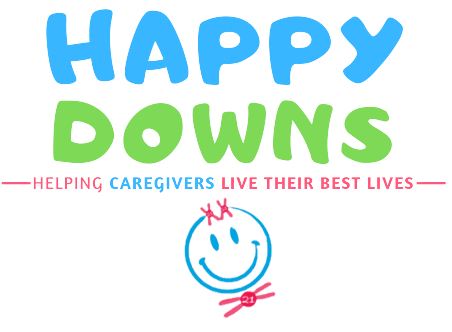Caring for adults with Down Syndrome means nurturing not only their physical and cognitive development but also their emotional and social well-being. Relationships are key to a fulfilling life, and adults with Down Syndrome are no exception—they can build deep, meaningful connections with the right support and understanding.
Let’s explore strategies for fostering healthy relationships by enhancing communication, building trust, promoting emotional support, and encouraging independence in social settings.
Understanding Social and Emotional Development
Social and emotional development in adults with Down Syndrome often comes with unique challenges. Individuals may express emotions differently, find certain social cues hard to interpret, or need additional guidance in navigating relationships. However, with the right support, they can experience fulfilling friendships, romantic partnerships, and social networks.
Myth-busting Common Misconceptions:
There’s a widespread belief that people with Down Syndrome cannot form deep relationships or maintain them. This is simply untrue. Adults with Down Syndrome can fall in love, make friends, and be a part of strong social communities. The key lies in understanding their needs, offering patience, and debunking these myths.
Effective Communication Strategies

Communication is the heart of any relationship. For adults with Down Syndrome, clear, consistent communication is especially crucial. Here’s how you can foster better communication:
- Break Down Information:
Simplifying complex ideas into smaller, manageable parts can make communication more effective. Avoid jargon or overly complicated language. - Leverage Visual Aids:
Visual supports, such as picture cards or communication apps, can make conversations smoother. Tools like these help adults with Down Syndrome express their needs and feelings more clearly. - Use Technology to Bridge Gaps:
Technology is a powerful tool in modern communication. Explore apps designed for enhanced communication, such as speech-to-text or visual aid apps, to help facilitate interactions. - Get Professional Support:
Speech-language pathologists can provide personalized strategies to help improve communication. These professionals offer practical tools tailored to the individual’s specific needs and abilities. - Practice Patience:
Give them time to process information and respond. Avoid rushing conversations—offer gentle prompts and plenty of encouragement. Taking the time to listen carefully can lead to more meaningful interactions.
Building Trust and Providing Emotional Support
Trust is the foundation of any strong relationship. Adults with Down Syndrome may require more time and consistency to build trust, but it’s certainly achievable. Here’s how you can foster a trusting, emotionally supportive relationship:
- Consistency is Key:
Be reliable. Stick to routines, keep promises, and follow through on commitments. Small, consistent actions reinforce trust and reliability. - Emotional Support:
Offer a safe space for expressing emotions without judgment. Acknowledge their feelings and encourage open dialogue. By validating their emotions, you make it easier for them to share what they’re feeling. - Respect Boundaries:
It’s important to understand and respect personal boundaries. Engage in regular communication about comfort zones and personal space to avoid misunderstandings. Encourage independence while ensuring they feel safe and supported.
Promoting Independence and Social Skills

Encouraging independence is essential for fostering self-confidence in adults with Down Syndrome. By promoting their social skills and involvement in daily activities, you can help them navigate relationships more effectively.
- Daily Life Skills for Independence:
Help build autonomy by supporting tasks like managing finances, cooking, or handling daily chores. These small steps enhance confidence and independence, making them feel empowered. - Opportunities for Social Interaction:
Involvement in group activities—whether through sports, community events, or group classes—provides great opportunities to meet new people and practice social skills. It also fosters a sense of belonging and inclusion. - Community Support Networks:
Seek out local support groups for adults with Down Syndrome and their caregivers. These groups offer valuable resources, shared experiences, and social opportunities, making them a wonderful platform for growth and socialization. - Encouraging Hobbies and Interests:
Hobbies are a wonderful way to connect socially. Encourage adults with Down Syndrome to explore their passions—whether it’s art, music, gardening, or other interests. These activities open doors to new friendships and provide a natural way to bond with others.
By offering thoughtful communication, emotional support, and opportunities for independence, caregivers can foster strong, meaningful relationships for adults with Down Syndrome. The journey may have its challenges, but with patience and empathy, these relationships can flourish, providing a deep sense of connection, belonging, and love.







